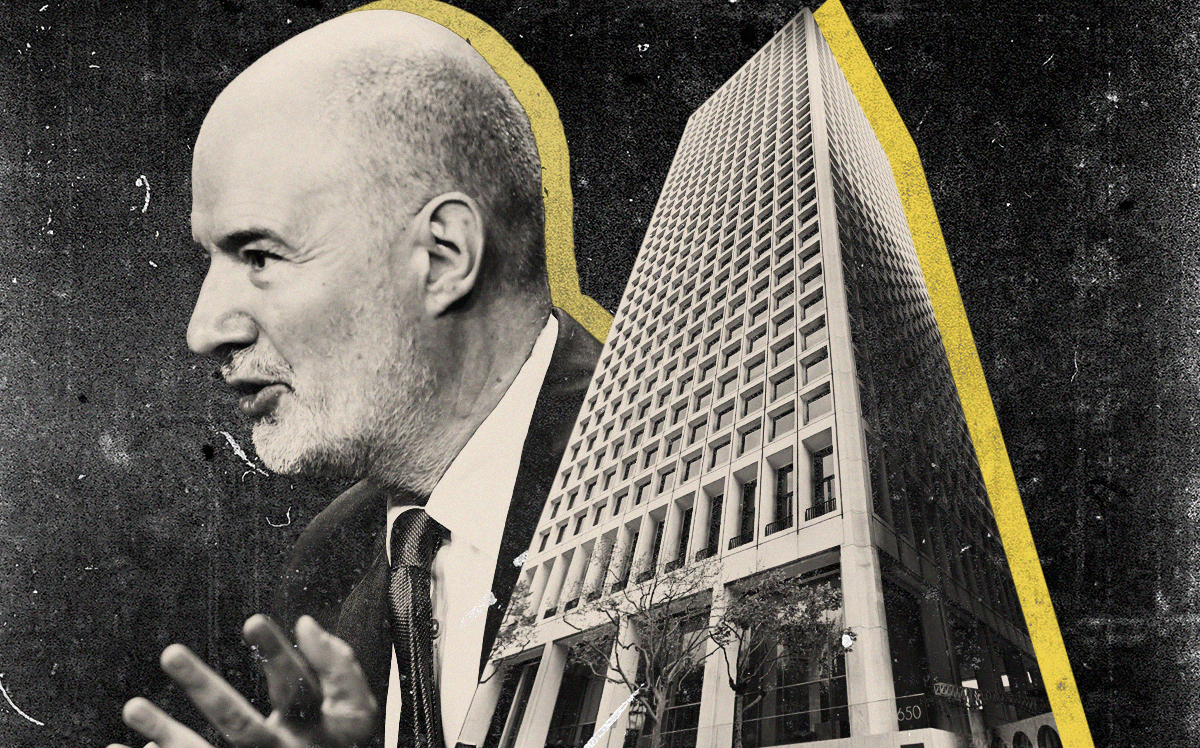More than a year after Columbia Property Trust notched one of the nation’s largest office defaults since the pandemic, the PIMCO-owned landlord has emerged from special servicing with a lifeline from its lenders and a sobering reappraisal.
Columbia, in negotiations with Goldman Sachs, Citigroup and Deutsche Bank, nabbed an extension on the $1.7 billion CMBS loan that bumps its maturity date to July 2025 and bakes in a six-month extension option, according to Morningstar Credit.
Seven office buildings — three in New York, two in San Francisco, one in Boston and another in Jersey City — collateralize the debt. Their valuation was slashed by 30 percent.
Critically, the modification cuts the interest rate on $485 million in subordinate A-notes to near-zero and the $160 million B-notes to 0 percent, as well as defers payments on the $125 million mezzanine debt, according to commentary from Morningstar Credit and ratings agency KBRA.
As of September, Columbia had quit making payments on the B-note and mezzanine debt, according to KBRA.
The workout still leaves the office landlord with $930 million in debt that is accruing significant interest. Columbia previously had an interest rate cap with a strike price of about 2.9 percent, KBRA reported. Caps insulate borrowers of floating-rate debt from paying more than the strike price if rates rise above it, which they have.
However, Columbia’s cap expired in December 2023 when its loan matured. The firm had the option to extend the due date and buy a new cap at the same strike price if it were not in default at maturity, but it was.
It’s unclear if the modification includes a new rate cap. A spokesperson for the firm declined to comment.
The portfolio, valued at $2.3 billion in 2021, was reappraised last month for $1.6 billion. The 30 percent reduction reflects the leasing difficulties across the portfolio.
Columbia’s collateral for the $1.7 billion loan includes 315 Park Avenue South, 229 West 43rd Street and 245-249 West 17th Street in New York; 201 and 650 California Street in San Francisco, 116 Huntington Avenue in Boston and 95 Christopher Columbus Drive in Jersey City.
Elon Musk has been the biggest thorn in the landlord’s side. In January 2023, the tech titan quit paying rent on the then-Twitter offices at 245-259 West 17th Street in Chelsea, where its monthly commitment was $1.5 million, and 650 California Street in San Francisco’s Financial District, where it failed to pay $123,000 in rent, according to KBRA. Twitter’s footprint comprised 8 percent of the Columbia portfolio’s gross leasable area.
Twitter, later rebranded as X, has since sublet its space at 650 California Street to Dentsu, a Japanese advertising and public relations agency, and sublet 17 percent of its Chelsea space (200,000 square feet) to personal finance app MoneyLion.
Otherwise, 650 California is on shaky ground. Fintech company Affirm was toying with ditching its 17 percent leasehold in September, the Wall Street Journal reported, and bankrupt WeWork (occupying 13 percent of the building) has yet to decide if it will stay, go or amend its terms. Credit Suisse, bought by UPS amid last year’s bank turmoil, is the building’s third-largest tenant at 7 percent of the net rentable area. The branch is marked temporarily closed on Google.
Down the road, the portfolio’s 201 California Street lost its third-largest tenant insurance attorney Cooper White & Cooper in early 2023. First Republic Bank, purchased by JPMorgan after its 2023 collapse, is the building’s largest tenant. JPMorgan has not closed that branch.
And over in New York, 315 Park Avenue South lost convenience store Amazon Go as a tenant amid a larger downsizing by Amazon.
At 229 West 43rd Street, the former New York Times building, has weathered no major departures, according to KBRA, though it did lease 110,000 square feet to beleaguered BuzzFeed in 2022. (The media company has made multiple rounds of layoffs.)
The building’s top-two tenants, Verizon and Snap, both have lease expirations scheduled for 2025. Together they occupy three-quarters of the property’s office space. The six-floor retail portion of the building, owned by Kushner Companies, is headed for foreclosure auction on May 29 after a years-long saga.
All told, the portfolio’s occupancy still hovered at a relatively healthy 87 percent early last year. It’s unclear where the figure now stands or to what degree revenue can now cover debt payments.
As of March, KBRA called Columbia’s reported debt service coverage ratio of 2.97 — revenue was nearly triple monthly loan payments — “incorrect.” It anticipated the portfolio was operating closer to break-even during the period.
What’s certain is that the latest reappraisal puts the assets’ loan-to-value ratio at 110 percent — meaning the portfolio, even with the modification, is underwater.
Read more



